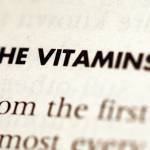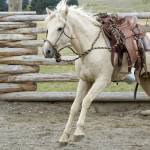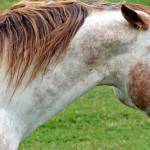Question
Can water with high sulfate levels cause equine ulcers? My mare was recently diagnosed with grade-4 ulcers and delayed gastric emptying. I know water with high levels of sulfate can cause gastroparesis in cattle. My mare developed these symptoms after a summer of drought and hot temperatures. She is still receiving aftercare for this problem, which was diagnosed after a stomach impaction. Since refeeding began, she has also had low-grade colic and gastric impaction. She is currently on soaked hay cubes, senior feed, and 10-minute grazing intervals. It seems as though she gorges on grass and then has an impaction. Currently, there is a high nitrate level in the grass. She is on a myriad of pharmaceuticals and is being monitored at the vet clinic. I am really worried and wondered what feed works best and how to slowly to reintroduce feeds. Are nitrates in grass a widespread problem?
Answer
Horses tolerate the presence of nitrates in forages better than ruminants; however, there are guidelines for the amount of nitrate considered safe to feed to horses. Nutritionists recommended having forage tested during periods of environmental stress, which can cause nitrate accumulation, or when nitrates have been converted to nitrites by environmental microbes, to make sure nitrate and nitrite levels are low enough to be safely fed to horses.
I could not find any reference to high-sulfur water causing the development of gastric ulcers in horses; however, it has been found to cause diarrhea in other species. The reduced forage availability during the drought could have resulted in the development of gastric ulcers, if ample supplemental forage was not provided or if there was an increase in concentrate feeding to provide the additional calories needed to maintain body weight. If the only available water source is high in sulfur, this can result in reduced water intake, probably from a taste aversion, which may have contributed to the gastric impaction. Water with high sulfur is known to have an astringent and bitter quality. Further, if the reduced water intake was during the summer, when the higher temperatures and drier forage increase the water requirement, it could have predisposed the horse to impaction. Offering a clean, uncontaminated water source is important for health and allows consumption monitoring.
You may want to get an analysis of the water done to check the levels of sulfur and nitrates/nitrites. The level of sulfur in drinking water that may affect intake is around 1000-1500 mg sulfur/liter. If you have not already had her teeth examined, I would recommend having a dental examination conducted to address if the problem with her gorging on pasture is due to her not chewing the grass properly before swallowing. If access to grass seems to result in impaction, then limiting her time spent grazing is vital and slowly increasing the amount of time spent per grazing session should allow her digestive tract to adapt. It may take several weeks before your mare is grazing for a prolonged period without any problems.
Guidelines for feeding your mare include:
- Small, frequent meals throughout the day;
- Offer meals with low to moderate nonstructural carbohydrates (NSC) if a commercial feed is needed to maintain weight;
- Feed a ration balancer if your mare does not need a concentrate to maintain her weight; a ration balancer will provide her with protein, vitamins, and minerals in a small daily amount (4-24 oz per day);
- Avoid large amounts of high-fat feed or oils as fat can delay gastric emptying;
- Use high-quality sources of fermentable fiber such as beet pulp, hay cubes, or soybean hulls;
- Soak pelleted feed and forage products for an additional way to provide water to help maintain hydration;
- Purchase a grazing muzzle to reduce her rate of intake when allowed to graze for short periods of time;
- Provide free-choice salt and additional electrolytes during hot, humid weather;
- Offer long-stemmed hay in small amounts frequently and slow consumption by using a slow feeder; this can help reduce gut fill.
After treatment of gastric ulcers with antiulcer medications (omeprazole is the only FDA-approved treatment for gastric ulcers), provide a digestive supplement to help maintain digestive health and function. Offering a total digestive tract buffer, such as RiteTrac, provides both stomach and hindgut buffers designed to support gastrointestinal well-being.








